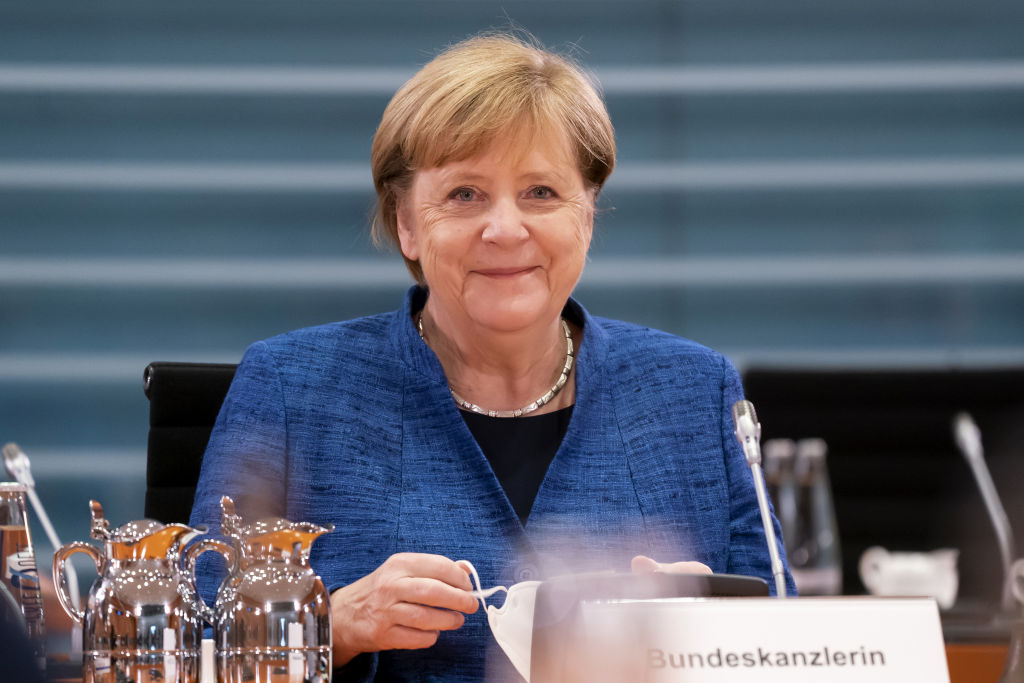Germany’s Social Democrats have remained quiet for months as their coalition partner, Angela Merkel’s Christian Democrats, have tackled this pandemic. But it seems as if some have had enough. Social Democrats are fed up with how the federal government has relied on decrees and executive orders during the epidemic, rather than using the proper legislative procedures. Critics believe Merkel and her cabinet have effectively neutralized Germany’s national parliament and now govern in whatever way they want.
A law proposed by Merkel’s health minister Jens Spahn could be the straw that breaks the camel’s back. Spahn’s advisers have drafted an update to the Infection Protection Act — which has already given the minister vast executive authority since the early stages of the pandemic. The updated version would not only extend the period in which these special rights are granted, but would also expand the minister’s powers considerably. The draft was leaked to the media a few days ago, revealing that Spahn would like to have the authority to mandate companies that operate public flights, trains and buses to deny passage to people from risk areas where the infection rate has passed a certain threshold. Moreover, Spahn wants to force these companies to hand over any data they have on passengers who may have been infectious.
The Social Democrats are only the junior partner in the government coalition, but they were able to put a temporary stop to Spahn’s plans, and the health ministry could be forced to scratch some of the proposed additional rights. ‘We want to specify the legislative basis (for this law) and restrict the leeway the government gets,’ Carsten Schneider, the Social Democrats’ parliamentary whip, told the media.
Lawmakers and legal experts in Germany are increasingly concerned that parliaments are losing their legislative power because governments are pushing for inappropriate executive authority. ‘The current regulations proposed in the Infection Protection Act do not specifically target (the causes of) the pandemic. Considering how important these measures are, one should think about specifying the regulations included in the law,’ Joachim Wieland, a judge at the constitutional court in North Rhine-Westphalia, said.
[special_offer]
It is not just the national parliament that is getting noticeably annoyed by how power is being used during this pandemic. Because of Germany’s federal system, state governments and parliaments often decide on restrictive measures individually, creating what the media calls a ‘patchwork rug’ of different regulations. The so-called accommodation ban that was imposed on hotels prohibiting them from accepting bookings from people residing in risk areas was suspended in most states after only a few weeks. A local court stopped the curfew introduced by the Berlin state government, while other states still have curfews in place. And the obligation to wear protective masks in public places is only enforced in some regions.
Courts are increasingly involved in stopping executive measures because they argue that these measures are either too vague or outright unconstitutional. At this point, Germany’s federal government and its state governments have to reconsider their approach to the pandemic. They seem avid for power, buying into the narrative that only administrations can stop this crisis, and not the institutions that would have to find a political consensus. A majority of Germans still accept the restrictions that are being imposed and their influence everyday life, because they believe in their necessity in these extraordinary times. If, however, the decision-makers at the top do not provide transparency and continue to overstep their constitutional authority, then they risk losing the trust of the people.
This article was originally published onThe Spectator’s UK website.


















